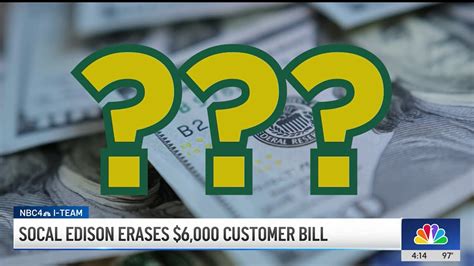
A Knoxville family is homeless after losing $1,800 to a rental scam involving a self-showing scheme, highlighting the growing prevalence of online rental fraud and the devastating consequences for victims.
A Knoxville family’s desperate search for housing turned into a nightmare after they fell victim to an elaborate rental scam, leaving them not only financially depleted but also without a home. The family lost $1,800 to fraudsters who exploited the self-showing system commonly used by property management companies, underscoring the increasing sophistication of rental scams and the vulnerabilities of those seeking affordable housing.
The victims, who wish to remain anonymous to protect their privacy and avoid further exploitation, were actively searching for a rental property in the Knoxville area due to an urgent need to secure housing. They came across a listing on a popular online platform that appeared legitimate, featuring photos and details of a seemingly well-maintained home. What set this listing apart – and ultimately made it deceptive – was the use of a self-showing system.
Self-showing systems have become increasingly popular in the rental market, offering prospective tenants the convenience of viewing properties at their own pace and schedule. These systems typically involve obtaining a code or access through a lockbox after verifying identity and sometimes making a small payment. Scammers are now exploiting this system by creating fake listings, gaining access to legitimate lockboxes, or creating their own, and then collecting deposits and rent from unsuspecting victims before disappearing.
In this particular case, the Knoxville family followed the instructions provided in the listing, which directed them to a third-party website that mimicked a legitimate property management company. They were asked to provide personal information, including their social security number and banking details, ostensibly for a background check and credit verification. After completing the online forms, they were prompted to pay a deposit and the first month’s rent, totaling $1,800, via a digital payment platform.
Believing they had secured the rental, the family arrived at the property on the agreed-upon move-in date, only to discover that the keys they had been provided did not work. Upon further investigation, they learned that the property was already occupied by another family and that the listing was fraudulent. The actual property management company confirmed that they had no record of the Knoxville family and that the listing was indeed a scam.
“It’s a devastating situation for this family,” said a representative from a local housing advocacy group who is assisting the family in finding emergency shelter. “They were already struggling to find affordable housing, and this scam has set them back even further. It’s a stark reminder of the predatory nature of these scams and the urgent need for greater awareness and protection for renters.”
The Knoxville Police Department has launched an investigation into the scam, but authorities caution that recovering the stolen funds may be difficult, as these types of scams often involve perpetrators operating from outside the state or even the country. They advise anyone looking for rental properties to exercise extreme caution and to verify the legitimacy of the listing and the property management company before sending any money or personal information.
“We’re seeing a significant increase in rental scams in our area,” said a spokesperson for the Knoxville Police Department. “Scammers are becoming more sophisticated, and they’re targeting vulnerable individuals who are desperate for housing. It’s crucial to do your research, ask questions, and never send money to someone you haven’t met in person or whose identity you haven’t verified.”
This incident in Knoxville highlights a growing national problem. The Federal Trade Commission (FTC) and other consumer protection agencies have reported a surge in rental scams in recent years, fueled by the rise of online marketplaces and the increasing demand for affordable housing. These scams can take various forms, including fake listings, identity theft, and phishing schemes.
Experts recommend several steps to protect yourself from rental scams, including:
- Verify the listing: Always check if the listing is legitimate by contacting the property management company directly or searching for the property on other reputable websites.
- Meet the landlord in person: Avoid renting a property sight unseen. Always meet the landlord or property manager in person to verify their identity and inspect the property.
- Be wary of requests for upfront payments: Never send money to someone you haven’t met in person or whose identity you haven’t verified. Be especially cautious of requests for wire transfers or payments through غیرقابل ردیابی methods.
- Read the lease carefully: Before signing a lease, read it carefully and make sure you understand all the terms and conditions. If you have any questions, consult with an attorney or a tenant rights organization.
- Report suspicious activity: If you suspect you’ve been targeted by a rental scam, report it to the FTC, your local police department, and the website where you found the listing.
The Knoxville family’s experience serves as a cautionary tale for anyone seeking rental housing online. By being vigilant, doing your research, and following these safety tips, you can protect yourself from becoming a victim of rental fraud. The increasing prevalence of these scams underscores the need for greater awareness, stricter regulations, and increased enforcement to protect vulnerable renters from financial loss and homelessness. The local housing advocacy group is working with the family to find temporary shelter and connect them with resources to help them recover from this devastating experience. The group also emphasized the need for increased funding for affordable housing programs and tenant education initiatives to prevent similar scams from happening in the future.
Further Details and Context
The story of the Knoxville family is not an isolated incident but rather a symptom of a larger, growing problem. Rental scams have become increasingly prevalent across the United States, particularly in areas with high demand for affordable housing and limited availability. The rise of online rental platforms has inadvertently created opportunities for scammers to exploit unsuspecting renters.
The sophistication of these scams is constantly evolving. Scammers are using increasingly sophisticated tactics to create fake listings that appear legitimate, often using stolen photos and information from real properties. They may also impersonate landlords or property managers, using fake email addresses and phone numbers to communicate with potential victims.
One of the key factors contributing to the rise of rental scams is the anonymity afforded by the internet. Scammers can operate from anywhere in the world, making it difficult for law enforcement to track them down and prosecute them. They often use burner phones and fake email addresses to conceal their identities, and they may route payments through multiple accounts to further obscure their trail.
The victims of rental scams are often vulnerable individuals who are already struggling to find affordable housing. They may be low-income families, students, seniors, or individuals with disabilities. These individuals are often desperate to find a place to live and may be more likely to fall for a scam.
The financial consequences of rental scams can be devastating. Victims may lose hundreds or even thousands of dollars in deposits, rent, and application fees. They may also be left without a place to live, forcing them to seek emergency shelter or live on the streets.
In addition to the financial losses, rental scams can also have a significant emotional impact on victims. They may feel embarrassed, ashamed, and angry. They may also lose trust in others and become more hesitant to engage in online transactions.
The rise of self-showing systems, while offering convenience, has also created new opportunities for scammers. These systems allow prospective tenants to view properties without meeting the landlord or property manager in person. Scammers can exploit this system by creating fake listings and using lockboxes to gain access to properties. They can then show the property to multiple victims, collecting deposits and rent from each one before disappearing.
The Knoxville family’s experience highlights the need for greater awareness of rental scams and for increased efforts to protect vulnerable renters. This includes educating renters about the warning signs of rental scams, providing resources for victims of rental scams, and increasing enforcement of laws against rental fraud.
Legal and Regulatory Landscape
The legal and regulatory landscape surrounding rental scams is complex and varies from state to state. However, there are several federal laws that can be used to prosecute rental scammers, including laws against mail fraud, wire fraud, and identity theft.
The Federal Trade Commission (FTC) is the primary federal agency responsible for investigating and prosecuting rental scams. The FTC has the authority to bring enforcement actions against companies and individuals who engage in deceptive or unfair business practices.
Many states also have laws that specifically address rental scams. These laws may prohibit landlords from charging excessive application fees, requiring excessive security deposits, or misrepresenting the availability or condition of rental properties.
In addition to federal and state laws, there are also several local ordinances that may address rental scams. These ordinances may require landlords to register their rental properties with the city or county, to provide tenants with a written lease, or to comply with certain housing codes.
Despite these laws and regulations, rental scams remain a persistent problem. This is due in part to the difficulty of tracking down and prosecuting scammers who operate online and often from outside the jurisdiction.
The Role of Technology and Online Platforms
Technology and online platforms have played a significant role in the rise of rental scams. Online rental platforms have made it easier for scammers to reach a large number of potential victims. They have also made it easier for scammers to create fake listings and impersonate landlords or property managers.
Social media platforms have also been used to perpetrate rental scams. Scammers may create fake profiles on social media platforms and use them to advertise fake rental properties. They may also use social media platforms to target vulnerable individuals who are looking for housing.
Cryptocurrencies have also been used in rental scams. Scammers may request payment in cryptocurrency because it is difficult to trace and recover.
Online platforms have a responsibility to protect their users from rental scams. They should implement measures to verify the identity of landlords and property managers, to screen listings for fraudulent content, and to provide users with resources to report suspicious activity.
Community and Governmental Responses
Community and governmental organizations are working to address the problem of rental scams. These organizations are providing education and outreach to renters, offering assistance to victims of rental scams, and advocating for stronger laws and regulations to protect renters.
Local housing advocacy groups are often on the front lines of the fight against rental scams. These groups provide counseling and support to victims of rental scams, help them find emergency shelter, and connect them with legal services.
Government agencies are also working to address the problem of rental scams. The FTC is investigating and prosecuting rental scammers, and state and local law enforcement agencies are working to track down and arrest them.
Some cities and states are also implementing new laws and regulations to protect renters from rental scams. These laws may require landlords to register their rental properties with the city or county, to provide tenants with a written lease, or to comply with certain housing codes.
Preventive Measures and Best Practices
Preventing rental scams requires a multi-faceted approach that involves education, vigilance, and collaboration between renters, landlords, online platforms, and law enforcement agencies. Here are some best practices for renters to protect themselves from becoming victims of rental fraud:
-
Conduct Thorough Research: Before engaging with any rental listing, research the property, the landlord or property management company, and the surrounding area. Look for reviews and ratings online, and check with the Better Business Bureau to see if there have been any complaints filed against the company.
-
Verify the Listing’s Authenticity: Don’t rely solely on the information provided in the listing. Contact the property management company directly through their official website or phone number (not the one listed in the advertisement) to verify that the listing is legitimate and that the person you’re communicating with is authorized to represent the property.
-
Beware of Red Flags: Be cautious of listings with unusually low prices, excessive demands for upfront payments, or pressure to make a decision quickly. Scammers often use these tactics to lure in unsuspecting victims.
-
Never Send Money Without Verification: Never send money to someone you haven’t met in person or whose identity you haven’t verified. Avoid wire transfers, prepaid debit cards, and other غيرقابل ردیابی payment methods, as these are often preferred by scammers. Use a secure payment method like a credit card or a certified check.
-
Inspect the Property in Person: Always inspect the property in person before signing a lease or paying any money. This will allow you to verify that the property exists, that it is in good condition, and that the person showing you the property is authorized to do so.
-
Read the Lease Agreement Carefully: Before signing a lease agreement, read it carefully and make sure you understand all the terms and conditions. If you have any questions, consult with an attorney or a tenant rights organization.
-
Trust Your Gut: If something seems too good to be true, it probably is. Trust your instincts and be wary of any situation that feels suspicious or uncomfortable.
For landlords and property management companies, here are some best practices to prevent their properties from being used in rental scams:
-
Monitor Online Listings: Regularly monitor online rental platforms to ensure that your properties are not being listed fraudulently.
-
Secure Vacant Properties: Ensure that vacant properties are properly secured to prevent unauthorized access.
-
Educate Staff: Train your staff to recognize and respond to rental scam attempts.
-
Verify Tenant Identities: Implement procedures to verify the identities of prospective tenants before showing them properties or accepting applications.
-
Use Secure Payment Methods: Use secure payment methods for collecting rent and deposits.
For online platforms, here are some best practices to prevent rental scams from being posted on their sites:
-
Verify User Identities: Implement procedures to verify the identities of landlords and property managers before allowing them to post listings.
-
Screen Listings for Fraudulent Content: Use automated tools and manual review to screen listings for fraudulent content, such as stolen photos, inaccurate descriptions, and suspicious pricing.
-
Provide User Education: Provide users with education and resources to help them identify and avoid rental scams.
-
Investigate Suspicious Activity: Investigate reports of suspicious activity promptly and take appropriate action, such as removing fraudulent listings and banning scammers from the platform.
-
Collaborate with Law Enforcement: Collaborate with law enforcement agencies to share information and assist in investigations of rental scams.
By working together, renters, landlords, online platforms, and law enforcement agencies can help to prevent rental scams and protect vulnerable individuals from financial loss and homelessness.
FAQ Section
1. What is a rental scam and how does it typically work?
A rental scam is a deceptive scheme where fraudsters attempt to trick individuals looking for rental properties into paying money or providing personal information under false pretenses. These scams often involve fake listings of properties that don’t exist or are not actually available for rent. Scammers may pose as landlords or property managers, requesting deposits, rent payments, or application fees upfront before disappearing with the money. Self-showing systems are increasingly being exploited, where scammers gain unauthorized access to lockboxes or create fake ones, collecting payments after showing the property (or a property similar to it).
2. What are the common red flags that indicate a rental listing might be a scam?
Several red flags can indicate a rental listing is a scam:
- Unusually Low Rent: If the rent is significantly lower than comparable properties in the area, it could be a bait-and-switch tactic.
- Demands for Upfront Payments: Be wary of landlords who ask for large sums of money upfront before you’ve seen the property or signed a lease.
- Pressure to Act Quickly: Scammers often pressure victims to make a decision quickly to prevent them from doing their research.
- Poor Grammar and Spelling: Listings with numerous grammatical errors and typos can be a sign of a scam.
- Refusal to Meet in Person: A legitimate landlord will typically be willing to meet you in person to show you the property.
- Requests for غيرقابل ردیابی Payment Methods: Scammers often prefer غيرقابل ردیابی payment methods like wire transfers or prepaid debit cards.
- Requests for Personal Information: Asking for sensitive personal information upfront, such as your Social Security number or bank account details, before an application has been officially processed, is a red flag.
3. What steps can I take to protect myself from rental scams when searching for a property online?
To protect yourself from rental scams, take the following steps:
- Research the Property and Landlord: Verify the property exists and that the landlord is legitimate by searching public records and contacting the property management company directly.
- Inspect the Property in Person: Always view the property in person before signing a lease or paying any money.
- Read the Lease Agreement Carefully: Review the lease agreement thoroughly and make sure you understand all the terms and conditions.
- Use Secure Payment Methods: Pay rent and deposits using secure payment methods like credit cards or certified checks. Avoid wire transfers or prepaid debit cards.
- Trust Your Gut: If something feels off or too good to be true, trust your instincts and walk away.
- Reverse Image Search: Use reverse image search on Google to check if the property images are used in other listings or websites, which could indicate a fake listing.
- Check for Consistent Information: Make sure the landlord’s name, contact information, and property details are consistent across all platforms.
4. What should I do if I suspect I’ve been targeted by a rental scam or have already fallen victim to one?
If you suspect you’ve been targeted by a rental scam or have already fallen victim to one:
- Stop All Communication: Cease all communication with the scammer immediately.
- Report the Scam: Report the scam to the Federal Trade Commission (FTC) at ReportFraud.ftc.gov and your local police department.
- Contact Your Bank: If you’ve sent money to the scammer, contact your bank or credit card company immediately to report the fraud and try to recover your funds.
- Change Your Passwords: Change your passwords for all online accounts, especially your email and banking accounts.
- Monitor Your Credit Report: Monitor your credit report for any signs of identity theft.
- File a Police Report: File a police report with your local law enforcement agency.
- Contact Credit Bureaus: Contact the major credit bureaus (Equifax, Experian, and TransUnion) to place a fraud alert on your credit report.
- Seek Legal Advice: Consult with an attorney or a tenant rights organization to explore your legal options.
5. What resources are available to help victims of rental scams or to provide more information on how to avoid them?
Several resources are available to help victims of rental scams and provide more information on how to avoid them:
- Federal Trade Commission (FTC): The FTC provides information on rental scams and allows you to report fraud at ReportFraud.ftc.gov.
- Better Business Bureau (BBB): The BBB provides information on businesses and allows you to file complaints.
- Consumer Financial Protection Bureau (CFPB): The CFPB provides resources on financial fraud and scams.
- Tenant Rights Organizations: Tenant rights organizations can provide legal assistance and advice to renters.
- Local Housing Authorities: Local housing authorities can provide information on affordable housing options and rental assistance programs.
- Legal Aid Societies: Legal aid societies provide free or low-cost legal services to low-income individuals.
- Nonprofit Organizations: Many nonprofit organizations offer assistance to victims of fraud and scams.
- AARP Fraud Watch Network: Provides resources and alerts on various types of scams targeting seniors.
- The Department of Housing and Urban Development (HUD): HUD offers resources on fair housing and rental assistance programs.
These FAQs aim to provide comprehensive information and guidance to protect individuals from rental scams and to assist those who have already fallen victim to them. Staying informed and vigilant is crucial in navigating the rental market safely.









